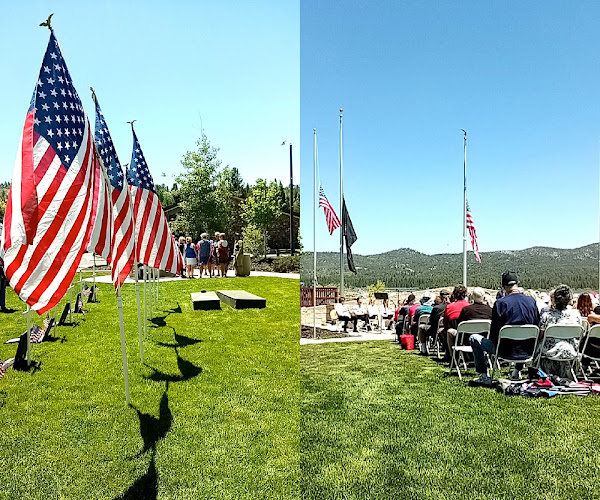On the Fifth Sunday of Easter I guest preached again. They follow the Narrative Lectionary that follows the autumn through spring academic year and gives the formal lectionary a summertime vacation. This is Matthew's year in both NL and RCL, thus my references to Matthew. They plan to study more of Jesus' Sermon on the Mount during the summer.
Instead of interpreting for the current context, I decided to introduce Romans; enthusiastic feedback confirmed that was the best decision. As before, this is more notes than it is actual preached words (because I still use notes when I need a prompt).
•
Romans 1:1-17
• Grace to you and peace from Jesus Christ, firstborn from the dead and the first fruits of the new creation. Amen!
Today we're celebrating live and we're celebrating virtual on Easter five! Easter isn't only a single glorious celebration, it's a fifty-day long season that occupies about one-seventh of the year. Today is the fifth Sunday of Easter, day 29.
We've been studying Matthew's gospel, but today we start several weeks in the letter or epistle to the church at Rome. These weeks will increase our understanding of Matthew when we return to the Sermon on the Mount during summer.
Letters or epistles in the NT were sent to various churches, often in a round robin style where content and comments got added before being sent to the next place. Unlike the gospels that mostly reflect on Jesus' life and ministry, epistles tend toward teaching and doctrines that the OT and Jesus' life reveal. The letters then in turn help clarify Jesus' teachings. Technically an epistle is a sent communication.
Paul/Saul of Tarsus wrote his epistles considerably earlier than the gospels were composed. I always need to remind myself these letters were so much earlier than the gospels, yet they also reflect upon and interpret Jesus of Nazareth's ministry. The NT includes seven Paul wrote for sure; a few others bear his name as author, but weren't written by him. Back then they didn't have copyright concerns, and to attribute what you wrote to a famous person was a compliment that also would get you more readers. The NT also contains letters written quite a while later by other authors. Those would include Titus and Timothy (both attributed to Paul), Peter, James…
Letters or epistles tend toward teachings and doctrines derived from God's activity in the world, from the birth, life, death, resurrection and ascension of Jesus Christ that other sections of scripture narrate.
Romans is the latest of Paul's letters. Today I'll talk about only chapter 1 that reveals some about the rest of the book. Romans includes theology of creation, redemption, and sanctification, along with words about the church. Theology about the Triune God! You could say Romans is Saint Paul's systematic theology. Systematics is the philosophical theology that outlines and structures its topics in logical ways. Among many others, Saint Augustine, John Calvin, and Karl Barth all wrote famous systematic theologies.
Although Romans' literary format is not a gospel, Paul uses the word gospel. Gospel means good news. Maybe you've seen the stage play musical, film, or TV show
Godspell? That's gospel in Old English. In the Roman imperial context, gospel already was a known concept. They referred to the birth of the future emperor a gospel. Gospel most frequently described the returning conquering general's announcement of annihilating his enemies. Just as Christianity subverts, turns upside down, and redefines many existing concepts and practices, the Christian gospel is the Good News of God's redemption in Jesus Christ. Not only is it life rather than death; the gospel of Jesus Christ is the annihilation of death and the reign of life.
As Christians we usually say the Gospel of Jesus Christ, yet Paul refers to the gospel of God, so this isn't something new. The good news for creation of redemption and renewal is the way God always has acted. In verse 16 Paul says the gospel is "God's saving power." Because of this, we can follow many gospeled threads through the Hebrew scriptures.
Reading the New Testament, we find different nuances and emphases of Gospel. For Paul in particular the gospel is death and resurrection. The word evangelical is gospel in Greek! As people baptized into Jesus Christ, we are a gospeled community.
Romans 1:16-17 is huge in the history of the church. These verses were a kind of hinge between the church prior to the Reformation in the 16th century and the church after that. Since Martin Luther's excitedly zeroing in on these verses, church and academy sometimes have said we only need to trust or have faith in God, that the medieval Roman branch of the church was mistaken when it claimed our works or behaviors could reconcile or make us right with God. As we study this letter and when we return to Matthew, it's important to remember that Paul never separates faith or trust from obedience or works (our actions). Neither did Jesus. Neither does any of the Old Testament.
Paul calls himself an apostle, but we know he wasn't one of Jesus' original twelve followers. In scripture an apostle is someone who has seen the risen Christ. You may remember in the book of Acts when they're voting to find a twelfth to join the remaining ones after Judas of Iscariot's betrayal, they insisted it had to be a "witness to the resurrection," someone who had met Jesus crucified, Christ risen face to face:
Acts 1:21-26 You've probably read the account of Paul's Conversion (also in Acts, chapter 9) when the risen Christ encounters Paul along the road? That event gave Paul apostolic qualification, just as our encounters with the Risen One make us apostles.
Paul introduces himself as an apostle, yet insists it's about BOTH being disciples or followers who learn from the teaching of the earthly Jesus AND about being apostles or sent people of the risen Christ. We've been in Matthew's gospel, where Matthew's Jesus is the ultimate teacher or rabbi. Jesus wants us, his followers to be the ultimate students or disciples, "taught persons." Disciple or apostle, it's a gift of God's grace.
An epistle is a sent communication; an apostle is a sent person.
We'll soon celebrate the day of Pentecost and the gift of the indwelling Holy Spirit we receive in baptism that enables us to follow Jesus as disciples and apostles.
I hope our study of Romans will broaden, deepen, and enhance our understanding of Jesus' teaching when we return to Matthew's gospel during the summer.
To God Alone Be Glory.
Amen!























